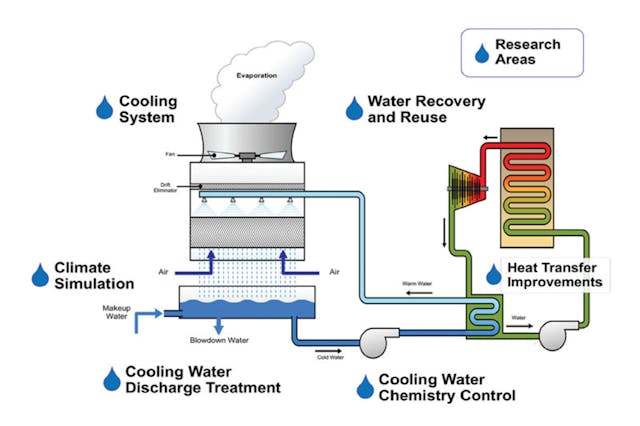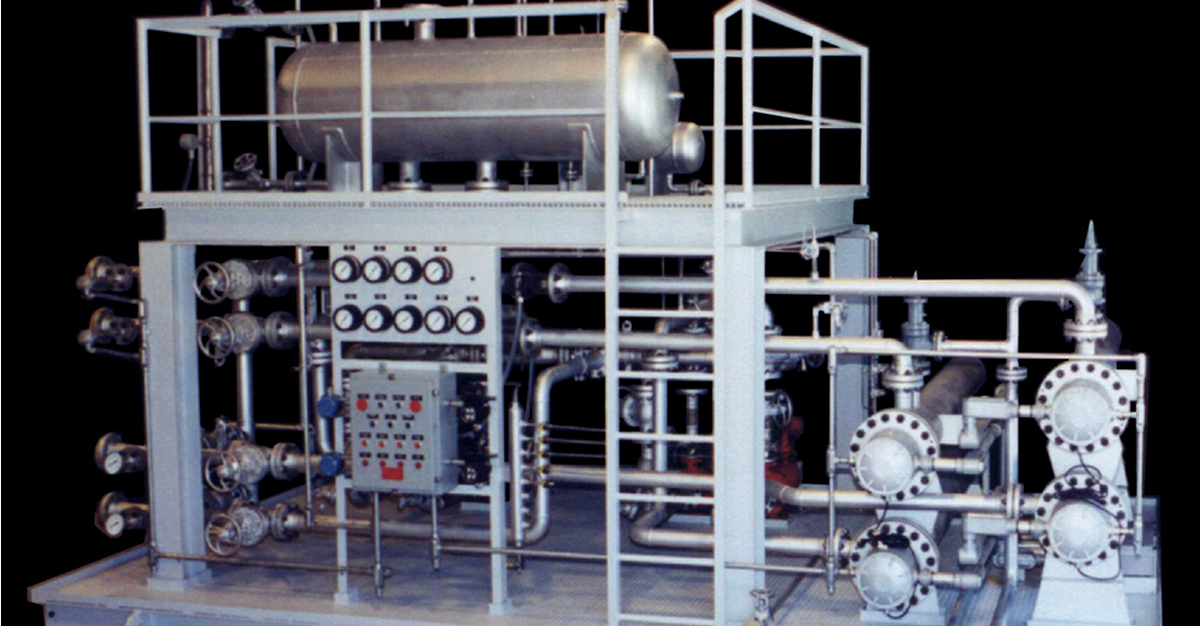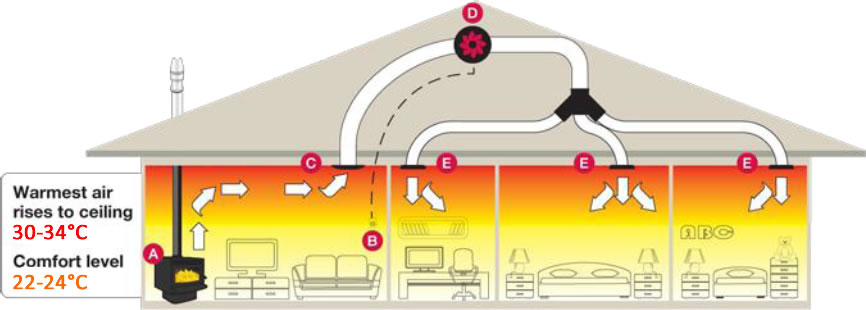Why Choose DVS Heat Transfer Systems for Compact Heat Exchanger Designs
The Function of Heat Transfer Systems in Sustainable Energy Solutions for the Future
Heat transfer systems are vital in the quest for sustainable energy solutions. They enhance thermal power monitoring, boosting the effectiveness of renewable modern technologies. By utilizing systems like convection, radiation, and transmission, these systems lessen energy losses. Their function in solar thermal and geothermal applications is specifically considerable. As innovations arise, the capacity for more advancements increases vital concerns regarding future energy methods. What advancements will shape the landscape of lasting energy?
Understanding Heat Transfer Systems

The Relevance of Thermal Power Monitoring
Effective thermal energy management is crucial for optimizing energy effectiveness and reducing waste in different systems. By controling temperature and optimizing Heat transfer processes, companies can markedly lower power intake and operational expenses. Reliable management involves the implementation of sophisticated modern technologies and techniques that keep track of and control thermal problems within systems, ensuring that energy sources are made use of efficiently. In addition, appropriate thermal power monitoring adds to minimizing greenhouse gas exhausts, straightening with international sustainability objectives. It additionally enhances system dependability and efficiency, resulting in enhanced product quality and longer devices life expectancy. Inevitably, prioritizing thermal power administration is an essential step in the direction of creating extra lasting power options and fostering an accountable approach to energy intake in industrial and household contexts.
Applications of Heat Transfer in Renewable Resource
While various renewable power resources promise sustainability, the efficient application of Heat transfer plays an important role in their effectiveness. In wind power systems, Heat transfer is utilized for turbine part air conditioning, improving performance and longevity. Geothermal energy relies upon reliable Heat exchange in between the earth's subsurface and the fluid flowing in the system, taking full advantage of energy extraction. Biomass energy processes additionally profit from Heat transfer, as it assists in transforming natural materials right into usable gas with pyrolysis and gasification. In addition, in hydropower, keeping ideal temperatures in reservoirs can enhance power output. Each of these applications shows the essential value of Heat transfer systems in improving renewable power modern technologies, ultimately adding to a more lasting power future.
Enhancing Solar Thermal Power Performance
As solar thermal power systems remain to progress, boosting their performance has actually come to be essential for optimizing power outcome. Breakthroughs in Heat transfer modern technologies, such as enhanced thermal storage space products and ingenious Heat exchangers, play a considerable role in improving efficiency. By utilizing sophisticated products that have premium thermal conductivity, systems can catch and transfer Heat better. Furthermore, integrating radar that comply with the sunlight's course assurances that enthusiasts receive excellent solar exposure throughout the day. Making use of nanotechnology in solar absorbers can additionally raise energy absorption rates. Incorporating automated control systems assists handle and manage temperature levels power distribution effectively, leading to minimized losses and improved total system efficiency. These improvements lead the way for even more sustainable solar thermal power services in the future.
Geothermal Home Heating: A Sustainable Option
Geothermal home heating presents a practical option for sustainable power, providing significant ecological benefits through reduced greenhouse gas emissions. Its performance and cost-effectiveness make it an eye-catching alternative to standard heating systems. Nevertheless, difficulties related to execution must be dealt with to maximize its prospective impact.
Ecological Benefits of Geothermal
Although traditional home heating techniques add considerably to greenhouse gas exhausts, geothermal heating provides a compelling choice that reduces ecological impact. By taking advantage of the Planet's internal Heat, geothermal systems make use of a renewable resource source, markedly minimizing reliance on fossil fuels. This technique generates minimal carbon emissions, making it a cleaner alternative for household and business heating. In addition, geothermal systems advertise energy efficiency, as they call for much less power contrasted to traditional heater. DVS Heat Transfer Systems. The application of geothermal power likewise aids in lowering air contamination, boosting neighborhood air top quality and public health. As a sustainable option, geothermal heating sustains Resources climate change reduction efforts, positioning itself as an important part in the shift in the direction of a greener future
Performance and Cost-Effectiveness
How does geothermal home heating gauge up in check here regards to efficiency and cost-effectiveness contrasted to traditional furnace? Geothermal home heating shows remarkable performance, usually attaining a coefficient of performance (POLICE) of 3 to 5, indicating it creates three to 5 systems of Heat for each system of electrical power eaten. This effectiveness converts right into lower operating expense, specifically in regions with stable geothermal sources. First setup prices can be greater than conventional systems; nevertheless, lasting cost savings on power bills and lowered upkeep expenses can balance out these ahead of time financial investments. Furthermore, numerous governments incentivize geothermal systems through discounts and tax debts, improving their cost-effectiveness. In general, geothermal home heating arises as a financially sensible and lasting alternative to even more conventional home heating services.
Execution Obstacles and Solutions
Various difficulties can restrain the widespread implementation of geothermal heating unit, regardless of their clear benefits as a lasting power option. High initial setup prices typically hinder homeowners and financiers, making funding a significant barrier. Additionally, the geographical restrictions of suitable geothermal websites restrict accessibility in specific areas. Local policies and allowing procedures can also complicate job growth, leading to delays. Public understanding and understanding of geothermal systems stay reduced, preventing acceptance. To deal with these obstacles, targeted education campaigns can improve public understanding, while government motivations might ease monetary burdens. Teaming up with neighborhood authorities to simplify policies may facilitate smoother project approvals, eventually promoting the adoption Find Out More of geothermal heating as a practical, sustainable energy option.
Advancements in Heat Transfer Technologies
Technologies in Heat transfer innovations play a crucial function in improving power effectiveness and sustainability. Advanced Heat exchangers and phase adjustment products are at the forefront of these developments, using significant enhancements in thermal management. These modern technologies not just enhance energy use yet likewise contribute to lowering ecological impact in various applications.
Advanced Heat Exchangers
Advanced Heat exchangers play a vital duty in enhancing energy efficiency throughout different applications in sustainable energy remedies. These gadgets facilitate the transfer of Heat between 2 or more liquids, markedly lowering energy intake in processes such as commercial heating, air conditioning, and power generation. Advancements in materials and style, such as the use of nanofluids and portable configurations, have actually resulted in boosted thermal performance and decreased dimension demands. In addition, advancements in digital tracking and control systems permit enhanced procedure, more increasing efficiency. By reducing waste Heat and making best use of energy recuperation, advanced Heat exchangers add to lower carbon footprints and sustain the shift towards eco pleasant innovations. Their proceeded growth is important for achieving international power sustainability goals.
Stage Change Materials
The assimilation of stage adjustment materials (PCMs) into Heat transfer technologies represents a considerable advancement in energy management and effectiveness. PCMs absorb and release thermal energy during their phase modifications, making it possible for effective temperature guideline in structure products and power systems. By keeping excess Heat during peak durations and launching it when need rises, PCMs add to pack shifting and energy conservation - DVS Heat Transfer Systems. This capacity improves the efficiency of renewable energy systems, particularly in solar thermal applications. In addition, PCMs can enhance the thermal convenience of indoor environments, lowering reliance on traditional home heating and cooling down techniques. As technologies in PCM formulas proceed to arise, their duty in sustainable energy options is poised to expand, using promising methods for future research study and application

Future Prospects for Heat Transfer in Lasting Power
As the demand for lasting energy remedies remains to increase, the duty of Heat transfer systems is becoming significantly important in forming future technologies. Developments in products and layouts are expected to improve efficiency in Heat transfer, decreasing energy losses in different applications. The integration of sophisticated thermal storage space systems, such as phase modification products and thermochemical storage space, will enable better management of power sources. Research right into nanofluids and biomimetic Heat exchangers may better maximize thermal efficiency. Furthermore, the adoption of wise innovations will certainly allow for real-time monitoring and flexible control of Heat transfer processes. These developments are poised to greatly add to the general efficiency and sustainability of energy systems, paving the way for an extra energy-efficient future.
Regularly Asked Inquiries
How Can People Apply Heat Transfer Systems at Home?

People can apply Heat transfer systems in the house by setting up energy-efficient devices, using radiant heat, and maximizing insulation. These steps enhance energy performance, decrease prices, and advertise sustainable practices in household settings.

What Are the Prices Connected With Mounting Heat Transfer Equipments?
The prices linked with setting up Heat transfer systems differ widely, usually incorporating devices, installment labor, and maintenance. Elements such as system kind, home size, and regional laws considerably affect the general expenditure entailed.
Exist Government Motivations for Heat Transfer System Installations?
Federal government motivations for Heat transfer system installations vary by region and can include tax obligation credit ratings, gives, and discounts. These economic advantages intend to motivate fostering, inevitably advertising power performance and lowering ecological impact within neighborhoods.
How Do Heat Transfer Equipments Influence Power Bills?
Heat transfer systems notably affect power bills by maximizing power efficiency. By boosting the transfer of Heat, these systems minimize energy usage, leading to reduced utility prices and creating an extra sustainable technique to power management.
What Upkeep Is Needed for Heat Transfer Equipments?
Maintenance for Heat transfer systems consists of regular assessments, cleansing of parts, inspecting fluid levels, making certain correct insulation, and replacing worn parts. These tasks aid keep effectiveness, protect against malfunctions, and lengthen the system's operational lifespan.
These systems assist in the activity of thermal power from one medium to an additional, enabling the transfer of Heat for heating, cooling, or energy generation objectives. Geothermal energy depends on reliable Heat exchange in between the planet's subsurface and the liquid flowing in the system, making best use of energy extraction. Furthermore, geothermal systems advertise power effectiveness, as they need less energy contrasted to standard home heating systems. Advanced Heat exchangers play a necessary function in enhancing energy performance throughout numerous applications in lasting energy services. Heat transfer systems especially affect energy costs by maximizing power efficiency.